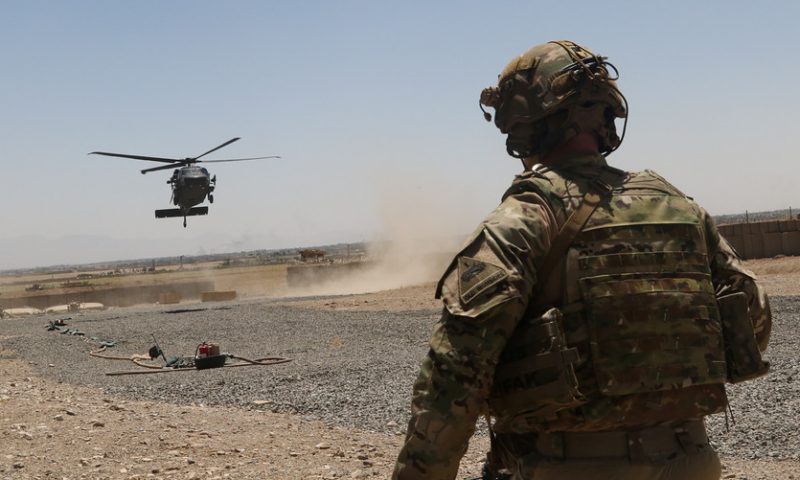Deal could see withdrawal of 14,000 U.S. troops
KABUL, Afghanistan — The Taliban attacked a second Afghan city in as many days on Sunday, killing several civilians and security forces, officials said, even as Washington’s peace envoy said the U.S. and the militant group are “at the threshold of an agreement” to end America’s longest war.
The attack on the capital of Baghlan province came hours after U.S. envoy Zalmay Khalilzad said he warned the Taliban during talks in Qatar that “violence like this must stop.” But he appeared determined to move forward on a deal that plans to withdraw some 14,000 remaining U.S. troops in exchange for Taliban guarantees that Afghanistan will not be used as a launch pad for global attacks.
Khalilzad arrived in Kabul on Sunday to brief the Afghan government on a deal, which is not yet final. Both he and the Taliban confirmed the latest round of talks had ended.
The Taliban spokesman in Qatar, Suhail Shaheen, said technical issues were still under discussion, but that “We are on the verge of ending the invasion and reaching a peaceful solution for Afghanistan.”
The weekend’s attacks are seen as strengthening the negotiating position of the Taliban, who control or hold sway over roughly half of Afghanistan and are at their strongest since their 2001 defeat by a U.S.-led invasion. Some critics warn that the Taliban are merely waiting out the U.S. and that another U.S. goal in the talks, a cease-fire, likely will not happen as foreign troops leave.
Provincial council member Mabobullah Ghafari told The Associated Press he had seen the bodies of at least six members of the security forces Sunday and that the situation was worsening by the hour. Gunfire could be heard late into the afternoon in parts of the city, home to more than 220,000 people. Some were trying to flee.
“I’m afraid the city will collapse if we don’t get reinforcements soon,” Ghafari said, adding that the Taliban had occupied some checkpoints with no resistance from security forces.
Taliban fighters had taken shelter in some homes, he said.
The assault on Puli Khumri, about 140 miles north of Kabul, came a day after the Taliban attacked Kunduz, one of Afghanistan’s largest cities, in the province to the north and killed at least 25 people and wounded 85. The interior ministry on Sunday said the Taliban had been cleared from Kunduz.
The Afghan interior ministry said four civilians and two members of the security forces were killed in Sunday’s attack, with 20 civilians and two security forces wounded. It said 21 Taliban fighters were dead.
Elsewhere Sunday, at least eight civilians were killed when their vehicle hit a roadside bomb in northern Balkh province, said Munir Ahmad Farhad, spokesman for the governor. Another vehicle struck a roadside bomb in western Farah province, killing six civilians, said Mohibullah Mohib, spokesman for the provincial police chief.
Few details have emerged from this latest round of U.S.-Taliban peace talks, adding to the uncertainty as violence increases. Afghanistan was the world’s deadliest conflict last year.
The agreement with the Taliban “will reduce violence and open the door for Afghans to sit together to negotiate an honorable & sustainable peace and a unified, sovereign Afghanistan that does not threaten the United States, its allies, or any other country,” the Afghan-born Khalilzad said on Twitter.
A U.S. official with the negotiation team added that “any potential peace deal will not be based on blind trust, but will instead contain clear commitments that are subject to our monitoring and verification.”
The official spoke on condition of anonymity because they were not authorized to discuss the matter with the media.
The official added that “if and when we are able to announce an agreement, the process will pivot to intra-Afghan negotiations where the Taliban will sit with other Afghans and together they will commit to a permanent and comprehensive cease-fire.”
The reference to “other Afghans” instead of the Afghan government is another reminder of the challenges ahead. The Taliban have refused to negotiate with the government, calling it a U.S. puppet.
About 20,000 U.S. and NATO troops are still in the country. The remaining U.S. troops train and support Afghan forces but also come to their aid with airstrikes and counterterror operations.

